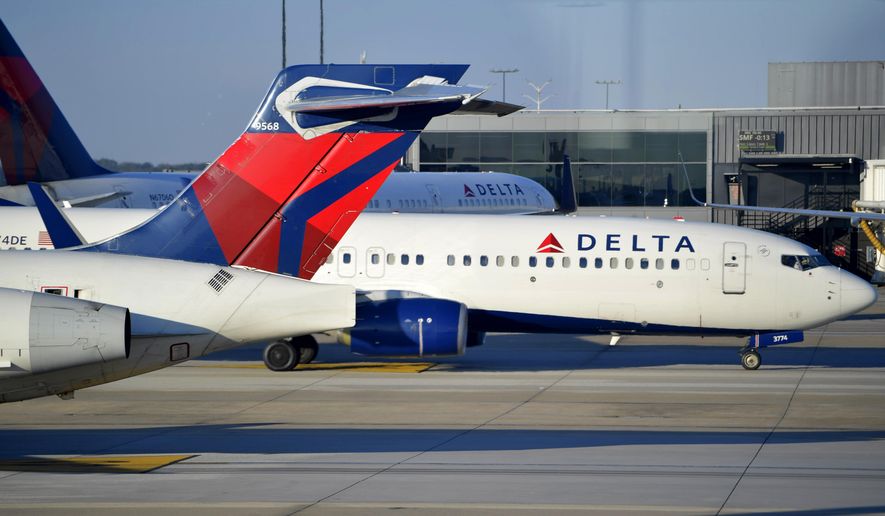Some airline passengers who caused mask-related trouble on planes during the coronavirus pandemic are getting another chance to fly.
Delta and United Airlines reinstated flight privileges for customers placed on no-fly lists for mask-related incidents after a federal judge ended the travel mask mandate Monday.
“With masks now optional, Delta will restore flight privileges for customers on the mask non-compliance no-fly list only after each case is reviewed and each customer demonstrates an understanding of their expected behavior when flying with us. Any further disregard for the policies that keep us all safe will result in placement on Delta’s permanent no-fly list,” a Delta spokesperson said in a statement.
Delta added that there are approximately 2,000 passengers on the “mask non-compliance no-fly list.”
Roughly 1,000 passengers are on United’s list, the airline said.
“On a case-by-case basis we will allow some customers who were previously banned for failing to comply with mask-related rules to fly United again — after ensuring their commitment to follow all crewmember instructions on board,” United said in a statement.
Alaska Airlines will also restore privileges for more than 1,700 guests who were banned.
“Now that the mask policy has been overturned, guests who were banned solely for mask noncompliance will be allowed to purchase tickets on our flights. However, some guests whose behavior was particularly egregious will remain banned,” Alaska Airlines said in a statement.
Southwest is keeping the restrictions in place going forward. The airline said in a statement that its no-fly list is based on “unruly and disruptive behavior” and is “unaffected by the recent court decision.”
“We don’t discuss our security protocols in specific terms,” Southwest added.
According to the Federal Aviation Administration, there were 5,981 unruly passenger reports in 2021 — 4,290 of those were mask-related. The FAA levied $5 million in fines last year, according to the agency’s website.
The agency said it is making its Zero Tolerance policy permanent following the court ruling. It implemented the system in January 2021 after a “disturbing increase” in unruly incidents.
“Behaving dangerously on a plane will cost you; that’s a promise,” acting FAA Administrator Billy Nolen said in a release Wednesday. “Unsafe behavior simply does not fly, and keeping our Zero Tolerance policy will help us continue making progress to prevent and punish this behavior.”
The release said the agency had sent 80 cases to the FBI as of Feb. 16 and is working with the Transportation Security Administration to take TSA PreCheck away from fined passengers.
For more information, visit The Washington Times COVID-19 resource page.
• Peter Santo can be reached at psanto@washingtontimes.com.




Please read our comment policy before commenting.